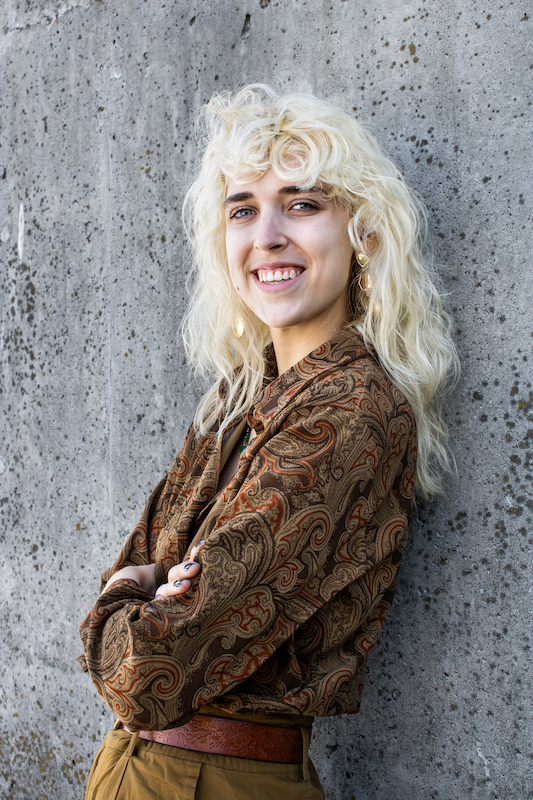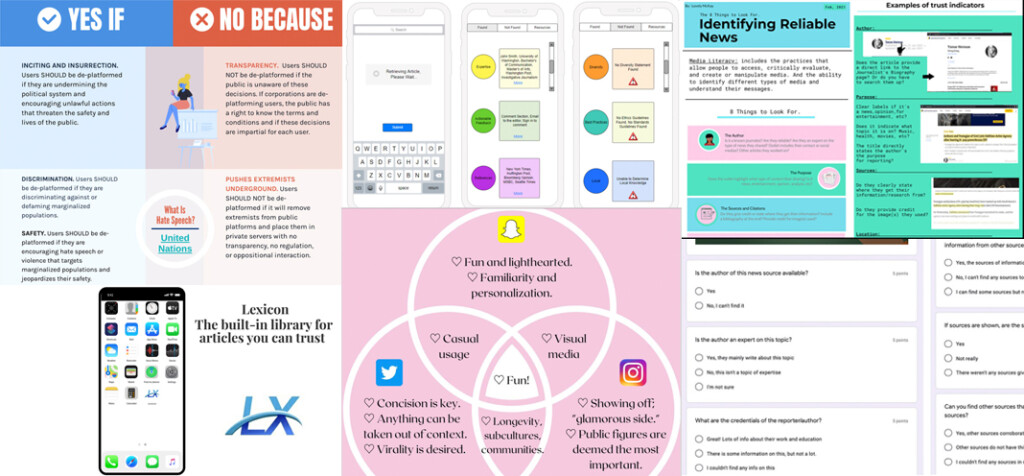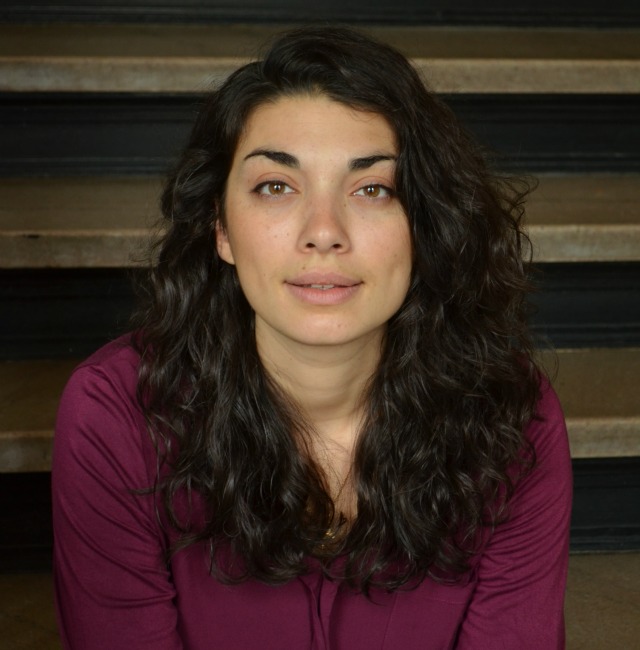Page 152 • (1,694 results in 0.037 seconds)
-

really rooted in the idea of introducing newer theater artists in training to theater practitioners who are already in the industry and have experience. There were two internships that I was looking at … the directing one and the teaching intern one, which is the one that I got. Both of them were really exciting to me, and they were also paid internships, so that was a big part of it too. What was the application process like, and what do you believe helped you stand out and land the internship? I
-

is one step towards training the public to consume media smartly, and gives them a helping hand to reference when they are unsure.Read full project briefMax Tucker: Lexicon App Artist Statement: Lexicon is an App idea created to improve media literacy and to function as an information resource tool. Lexicon functions as a media library that constantly updates articles and information. These articles are rated through a process of trust factors, as outlined by The Trust Project, and are rated
-
the State of Washington. Approved by UW Study Abroad Office, the program is also supported by scholarships from the UW Global Business Center and Study Abroad Office. It aims to provide UW students with high quality, rigorous and intensive Chinese language training over a period of eight weeks in the summer quarter. With various curricular and extra-curricular activities, the program will develop students’ Chinese language and literacy skills through language and cultural immersion. Students will
-
history and memorialization of the former “Kibbutz Grochow” in Warsaw Grochow, today a neighborhood in Warsaw, was the place of the essential Zionistic training farm of the HeChalutz movement. In my presentation, I will introduce the Kibbutz Grochow project, run by the Anski Association in Warsaw, commemorating the former kibbutz. Cieśla will present the history of Grochow and address how to commemorate such sites. Convener: Beth Griech-Polelle, Associate Professor of Holocaust History and Kurt Mayer
-
probationary period, that provides job security and academic freedom. Transcript An official record of a student’s courses, grades, and academic performance. Transfer Student A student who moves from one institution to another and seeks to have previous coursework accepted for credit. Tuition The fee that colleges charge for instruction and training (not including other fees such as room and board). U Undergraduate A student at a college or university who has not yet earned a bachelor’s or equivalent
-
Welcome to the Parkland Literacy CenterThe Parkland Literacy Center (PLC) is an organization at Pacific Lutheran University (PLU) that establishes, implements, and conducts various programs that serve the academic needs of our local community. The PLC is composed of PLU student staff as well as student volunteers. The mission of the PLC is to serve the greater Parkland community through literacy training and academic support. Currently, we provide any subject of tutoring to K-12 students within
-
still follow that stuff avidly,” Youtz says. “I wanted to be a philosopher, I wanted be a historian, I love anthropology, of course I have no formal training in any of these. “Music just kept pulling me back.” Arriving in Champagne, Youtz signed on as an able-bodied migrant laborer, picking champagne grapes along the French countryside. Following four weeks of fieldwork, Youtz hitchhiked south with burgundy-stained digits, and stumbled into employment at L’Aigle (The Eagle), a ski resort nestled
-

remember fondly her stellar performance of Prokofiev’s wickedly difficult Sonata for Flute and Piano in her senior recital.” So while Rottle’s PLU plan might have been a little up in the air, one thing was certain: After earning a bachelor’s degree in Music, there was no question she was a musician. And she wanted even more. “Being a student, you need to get the credentials and skills,” Rottle said. “Especially being a performer, it is less about the academic side of it; it is more about the training
-

experiments. Each day, I would either write up a new lab protocol, attempt to replicate a previous experiment’s results, or analyze data. I usually stayed until around 7 p.m., then collected my things, and biked home. When I started, I did one day of online lab safety training and then moved into shadowing for a few days. By the end of my first week, I had been given multiple lines of MOLM-13 acute myeloid leukemia cells. During my second week, I was preparing and running an assay to measure senescence in
-
the university. Inspiring bright, young Lutes to “put on their goggles” and ask their own questions about “stuff” is key to our work as faculty in the chemistry department. Students at PLU receive excellent hands-on training in the classrooms and laboratories of Rieke. Now is a particularly exciting time in the chemistry department. With near record numbers of majors, student-faculty research projects recently have ranged from investigating additives that would give polymers or plastics new
Do you have any feedback for us? If so, feel free to use our Feedback Form.


